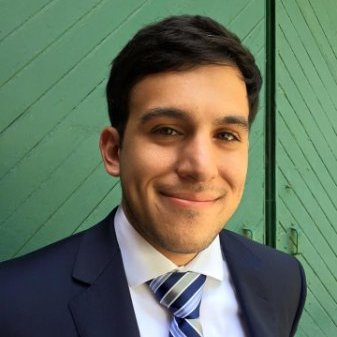Trump Appoints DHS Secretary and Ambassador to China
Fresh from a week full of controversial diplomatic moves regarding China, President-elect Donald Trump announced another two appointments for key national security positions: Retired Brigadier General John Kelly for Secretary of the Department of Homeland Security and Iowa Governor Terry Branstad as Ambassador to China.
Fresh from a week full of controversial diplomatic moves regarding China, President-elect Donald Trump announced another two appointments for key national security positions: Retired Brigadier General John Kelly for Secretary of the Department of Homeland Security and Iowa Governor Terry Branstad as Ambassador to China.
Department of Homeland Security: Ret. General John Kelly
The Department of Homeland Security (DHS) was created in the aftermath of the September 11th attacks to centralize and coordinate the “confusing patchwork of government activities ... whose primary mission is to protect our homeland.” DHS integrated all or part of 22 different federal departments and agencies, including the Immigration and Naturalization Service, Transportation Security Administration, Coast Guard, and Secret Service. The Department opened for business on March 1, 2003.
The Department has five stated missions: preventing terrorism and enhancing security, securing and managing US borders, enforcing and administering immigration laws, safeguarding and securing cyberspace, and ensuring resilience to disasters. As such, DHS will operate at the heart of the Trump administration’s immigration and border security initiatives. These initiatives include building a wall (or a fence) on the Mexican border and (a variety of changing) plans for tracking (or registering) Muslims (or immigrants who are Muslim). As a cabinet-level department, the DHS Secretary must receive Senate confirmation.
There have been four DHS Secretaries since 2003, each of whom pursued quite different career paths prior to their work at the Department. Two prior secretaries held political office, in Congress and as governor. Three had experience as federal or state prosecutors. Only one had prior, enlisted, military experience. As such, General John Kelly is a very different nominee.
Kelly has spent his entire professional career in the Marines. Until February 2016, General Kelly was the commander of U.S. Southern Command, overseeing military operations in South and Central America. Unlike other regional combatant commands, Southern Command is known for emphasizing “soft power,” and playing a particularly active role in humanitarian assistance, disaster relief, and local military training. Before his time at SOUTHCOM, Kelly previously commanded forces in Iraq and was an aid to Defense Secretaries Leon Panetta and Robert Gates.
Like prior Secretaries, Kelly does not have previous experience with the full breadth of activities within DHS’s ambit, though he has stated that human smuggling routes are “a potential vulnerability to our homeland.” He reportedly clashed frequently with the Obama administration, opposing the closing the Guantanamo Bay detention center and calling human rights groups’ criticism of military detention “foolishness.” He has also expressed reservations about opening all combat unit positions to women, saying that “there will be great pressure” to lower standards.
Notably, one of General Kelly’s sons, 1st Lieutenant Robert Kelly, was killed in 2010 while serving in Afghanistan’s Helmand Province. Kelly did not endorse any candidate during the election.
General Kelly is likely to face an easy confirmation. Senate Homeland Security Chairman Ron Johnson told reporters that Kelly “would be an outstanding pick.” Former Obama administration Defense Secretary Leon Panetta also endorsed Kelly, saying that “he has led our women and men in uniform and understands what it takes to keep our nation safe.”
U.S. Ambassador to China: Governor Terry Branstad (R-Iowa)
The United States re-established formal diplomatic relations with Beijing in 1979 and, since that time, the Ambassador has been Washington’s primary liaison to China. (For more on the United States’ complicated diplomatic history with China, see this post from last week.)
Ambassador-level appointments must be confirmed by the Senate. Over the past 21 years the Ambassador to China, like a smattering of other ambassadorial positions, has not been recruited from the State Department’s ranks of career diplomats. Instead, Ambassadors to China have had a wide range of prior professional experiences, some of which had little to do with diplomacy more generally or China in particular. Many had prior experience as federal and state level politicians. Recent notable exceptions were former Governor of Utah Jon Huntsman, who previously served as Ambassador to Singapore and Deputy US Trade Representative, and Clark Randt, who led law firm Shearman & Stirling’s Hong Kong office.
Branstad has had experience with China, and Chinese President Xi Jinping in particular, over the course of his governorship. He first met Xi in 1985 during Xi’s visit to Iowa as a provincial agricultural official. The pair subsequently reconvened in 2012, when Xi was vice-president of China.
Notwithstanding Trump’s controversial conversation with Taiwan’s President and his recent tweets criticizing Chinese currency and trade policies, Beijing was effusive about Branstad’s appointment. Chinese Foreign Ministry Spokesperson Lu Kang told reporters that “Mr. Branstad is an old friend of the Chinese people, and we welcome his greater contribution to the development of China-U.S. relations.”
Branstad’s appointment has been met with expert approval, and he is likely to be easily confirmed. China scholar Bonnie Glaser said that the appointment “means that the Trump team understands that it is important to have an ambassador who has access to Xi Jinping.” Obama administration Agriculture Secretary Tom Vilsack also commented that Branstad is “tenacious, and trust me, with the Chinese, you need to be tenacious.”





